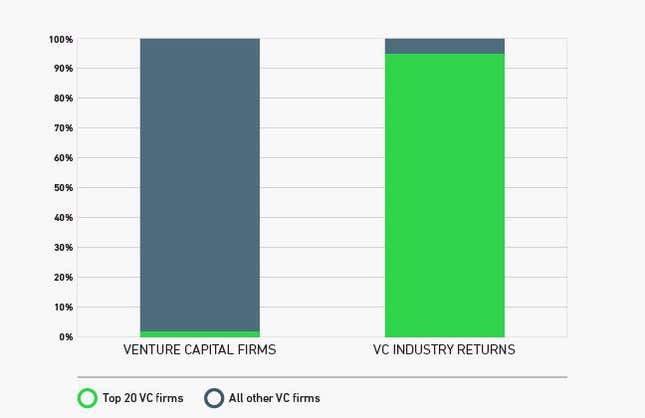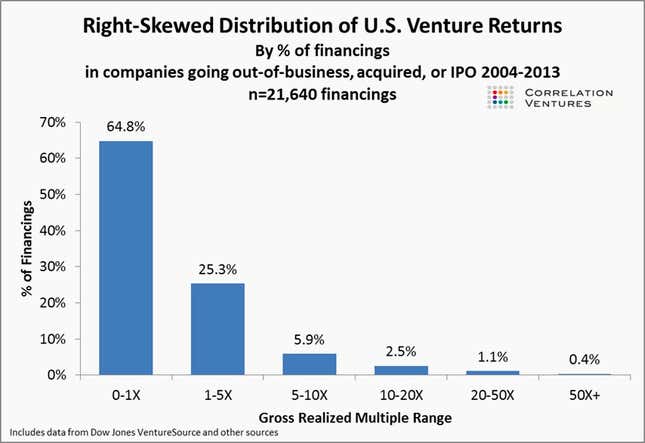Over the weekend, Airbnb CEO Brian Chesky shared some of the rejection letters he received in 2008 when the company was raising a $150,000 seed round at a $1.5 million valuation. That amount would’ve given investors a 10% stake in the startup, now worth $25 billion.
As some people (and publications) have noted, these investors might be kicking themselves today. But hindsight is 20/20, and it’s easy to see why they were cautious then—all the more so with the Great Recession in the backdrop.
An estimated three-quarters of startups fail, and most bets don’t pay off. This makes venture capital a notoriously unpredictable business—especially outside the 20 firms that, according to Wealthfront, account for 95% of the industry’s returns.

Looking at startup deals from 2004 to 2013, the vast majority of companies (65%) fail to return any capital at all, and only 4% have produced returns of 10 times or greater, according to analysis from Correlation Ventures.

For some of these firms, outsized returns come from just a few blockbuster hits. Take, for example, Sam Altman, president of the famed startup accelerator Y Combinator. His early bet in the payments processing startup Stripe is now worth more than 2,000 times the investment.
“So 97% of my returns from 2010 and 2011 are concentrated in one investment, which I could easily have missed,” he told the New Yorker in May. “I only let myself think about this sort of thing on vacation, because if I acknowledged that I was wasting more than 90% of my time—which is true, from an economic perspective—I couldn’t get through my days.”
Though some firms have unicorns, such as Stripe, to drive their returns, actually spotting them has proven to be exceedingly difficult. Even for the top VC firms, it’s extraordinarily rare to have 1% or more of their early-stage investments go on to become billion-dollar companies.
All this to say: There’s no way to know if three ambitious dudes looking to challenge the hotel industry are actually going to build a multi-billion-dollar business. Airbnb may be one of the fastest-growing startups today, but seven years ago, it was just a site for conference goers to find an airbed to crash on.
